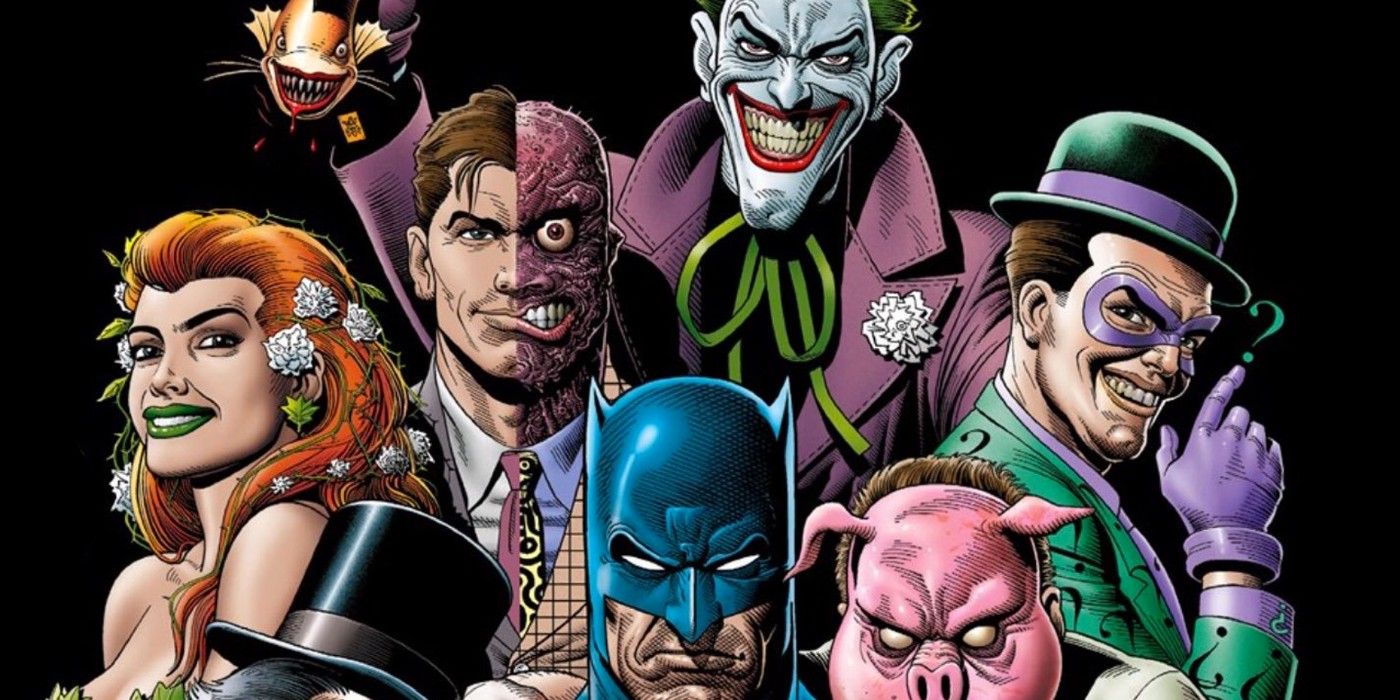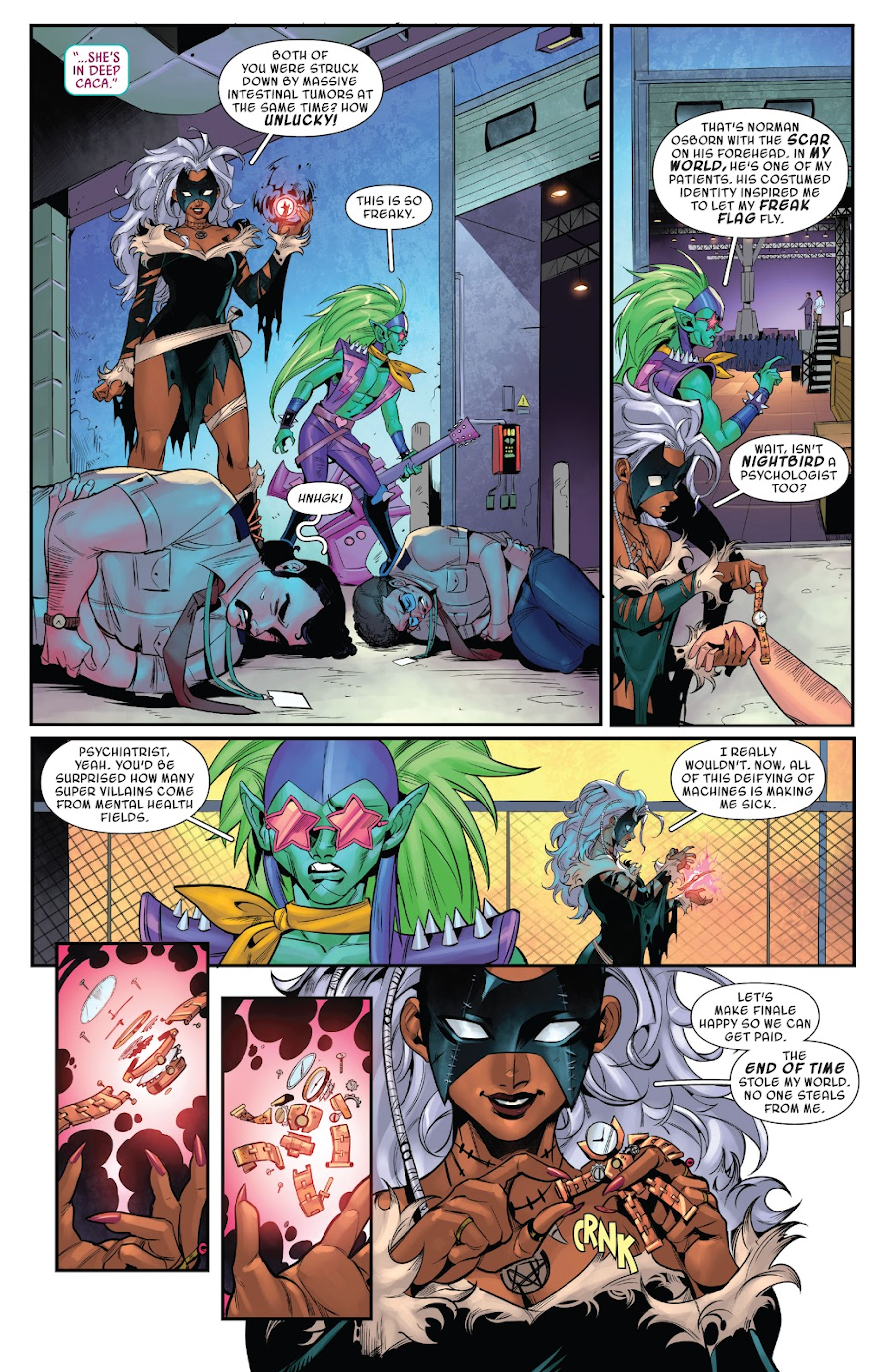Warning: contains spoilers for Spider-Gwen: Gwenverse #3!
Marvel uses an entire universe of Gwen Stacy variants to call out DC's tendency to use a very specific kind of Batman villain: the mental health professional turned evil. The Dark Knight has perhaps one of the most memorable and recognizable rogues galleries in all of comics; from the Joker to Harvey Dent to Catwoman and many more, each villain presents a distinct threat to Bruce Wayne and Gotham City. But Spider-Gwen: Gwenverse #3 insinuates that other Batman villains present a distinct threat to mental health, and perpetuate a stigma against the entire field.
Batman famously has no powers, and uses his intelligence (and his considerable fortune) to fight crime and defeat evil. A vast majority of his enemies are no different and possess no powers of their own; many have mental health issues of their own and are fixated on their own idiosyncrasies as a result: Two-Face cannot make any decisions without consulting his coin, the Riddler is compelled to leave clues behind at a crime scene, the Mad Hatter had a fixation on Lewis Carroll and Alice and Wonderland stories, etc. But a very specific subset of Batman villains are the doctors, nurses and therapists who turn evil; Harley Quinn, Hugo Strange, Scarecrow, and more.
In Spider-Gwen: Gwenverse #3, written by Tim Seeley with art by Jodi Nishijima, Gwen Stacy journeys through multiple alternate universes and finds a Gwen Stacy variant in each one: Captain America, Wolverine, and even Thor versions are all present. Villains are involved as well, including the Glam Goblin (a variant of the ever-popular Green Goblin), a psychologist. Black 13 realizes that Nightbird is a psychologist too, to which the Glam Goblin responds "Psychiatrist. Yeah, you'd be surprised how many supervillains come from mental health fields."
The Glam Goblin is accurately describing Harley Quinn, Hugo Strange and Scarecrow, Batman's three main villains who began their life as mental health professionals. Hugo and Jonathan Crane eventually experimented on others to further their own ends, while Harley Quinn was corrupted and used by the Joker. These evil therapists and doctors lead readers to believe the profession is inherently evil and/or a corrupting influence, when in actuality getting proper mental health help is immensely beneficial.
Batman's enemies are not always doctors, but they appear often enough to make one question if the Dark Knight's writers honestly believe that mental health professionals are evil or deluded. Seeking mental health has a certain stigma already; using supervillains or evil computers posing as therapists (the DC event Heroes in Crisis comes to mind) already accentuates a negative. Batman's many memorable villains are perhaps as famous as Batman himself, and DC should be aware of their power to influence others.


